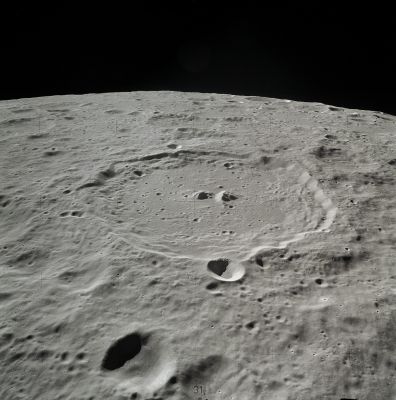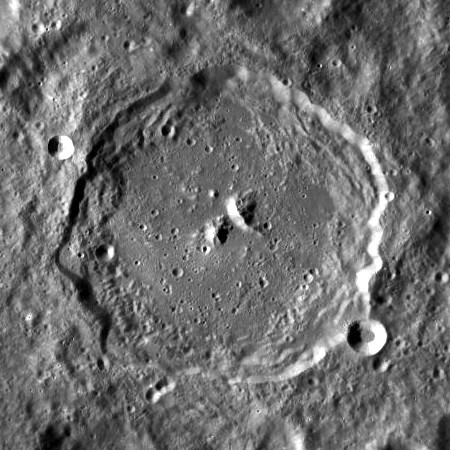Sklodowska
Contents
Sklodowska
|
Lat: 18.2°S, Long: 95.5°E, Diam: 127 km, Depth: km, Rükl: (farside), Upper Imbrian |


left: AS15-88-11987 Looking northwest with shadowed 25-km Koval'skiy U in the foreground, and 16-km Sklodowska J on Sklodowska's near rim.
right: LROC
Images
LPOD Photo Gallery Lunar Orbiter Images Apollo Images ASU Apollo Image Archive
Maps
Description
Description: Wikipedia
Additional Information
Nomenclature
- Named for Maria Sklodowska-Curie(born Maria Sklodowska; also known as Madame (Marie) Curie; November 7, 1867 – July 4, 1934), a Polish-French physicist and chemist. She was a pioneer in the field of radioactivity, the first twice-honored Nobel laureate (and still today the only laureate in two different sciences), and the first female professor at the Sorbonne.
- This crater was among those the initial list of 18 far-side features assigned IAU-approved names in 1961 on the basis of photographs returned by the Soviet Lunik 3 probe. The name assigned was Sklodowska-Curie, with the similar name Joliot-Curiebeing assigned to a northern hemisphere crater at a similar longitude.
- By 1970, the IAU had decided that giving craters similar-sounding names was a bad idea, so the present crater was renamed Sklodowska, while the northern hemisphere one was changed to Joliot. A separate crater to the southwest of Sklodowska was named Curiein honor of Pierre Curie.
- During planning for Apollo 8, the first manned circumlunar mission (1968), astronauts and mission planners (perhaps unaware that this crater already had a name), referred to Sklodowska-Curie by the informal name of "Houston" (see: Phil Stooke's LPOD).
- List of features named for women.
LPOD Articles
Five degrees beyond the limb (close-up of a small segment from an orbital Apollo 17 photograph of Sklodowska).
Bibliography